Suggested Treatment Options for Breast Cancer in the Elderly
Breast cancer, a widespread disease that affects women of all ages and stages of life, is a disease that's unfortunately all too common. And while the likelihood of being diagnosed with breast cancer does increase with age, older women often face unique difficulties when it comes to diagnosis and treatment.
That's why we're writing this article to help shed some light on the treatment options available for elderly women with breast cancer.
Characteristics of Breast Cancer in the Elderly
The biology and symptoms of breast cancer in elderly women are distinct from those of younger women, with older women more likely to have hormone receptor-positive cancers that are more responsive to hormonal treatments.
There may be no foolproof method of preventing breast cancer, but there are several things that may be done to lessen one's chances. Keeping a healthy lifestyle is the first line of defense against developing breast cancer in later life.
The chance of getting breast cancer may be lowered by adhering to healthy lifestyle habits such as maintaining a healthy weight, exercising often, and avoiding tobacco and excessive alcohol use. In addition, mammograms, which may identify abnormalities or the beginnings of cancer, should be routinely administered to women of advanced age. Being aware of one's family history may also help reduce the risk of developing breast cancer in later life.
Discussing your family's history of breast cancer with your doctor will help you identify any risk factors you may be missing. As an added precaution, ladies should monitor their breasts for any abnormalities and see a doctor if they see anything out of the ordinary.
Considerations for Formulating a Treatment Approach
There is no need to give up hope if someone has been diagnosed with breast cancer; as modern science offers several treatment options. Yet, there are several factors that must be considered when developing a treatment plan for an elderly woman.
These include patient preferences, tumor characteristics, health status, and available treatments and their potential side effects. It is important to have an open and honest discussion with the patient about her goals of care and what she is willing to tolerate in terms of treatment. This information can help guide the decision-making process and ensure that the patient is receiving the most appropriate treatment for her individual needs.
For elderly women with breast cancer, there are several recommended treatment options available to them, each with its own benefits and risks. These options include surgery, radiation therapy, chemotherapy, hormonal therapy, targeted therapy, immunotherapy, and stem cell transplant.
Surgery
When dealing with breast cancer in older women, surgery is often the first line of defense. The lumpectomy is a breast-conserving operation whose goal is to remove the malignant tissue while preserving the breast's aesthetics as much as possible.
The difference between a lumpectomy and a mastectomy is that the former merely eliminates the affected tissue and the latter removes the complete breast. Removing malignant tissue, lessening the likelihood of a recurrence, and enhancing aesthetics are all benefits of surgery. However, it's vital to remember that surgery may have its own set of complications, such as pain, scars, and infection.
Radiation Therapy
Once surgery has been completed, any leftover cancer cells may be eradicated using radiation therapy, making radiation therapy an essential adjuvant treatment. High-energy beams are used in this treatment, which is administered either externally or inside and aims at the malignant tissue.
There are a number of advantages to radiation treatment for breast cancer, including a lower chance of recurrence, preservation of breast appearance, and a lower risk of disease spreading. However, radiation treatment has potential drawbacks such as skin irritation, exhaustion, and the development of new malignancies.
Chemotherapy
Chemotherapy is a kind of systemic treatment that makes use of chemicals to eradicate cancer cells located everywhere in the body. It is often suggested for older women who have breast cancer that has progressed to an advanced stage or for those who have a significant chance of the disease returning.
Chemotherapy has a number of advantages, including the capacity to kill cancer cells in areas outside of the breast and the reduction in the size of huge tumors. Nevertheless, chemotherapy is associated with a number of serious adverse effects, such as sickness, exhaustion, and an increased risk of infection.
Hormonal Therapy
Hormonal therapy is an efficient method of treating hormone receptor-positive breast cancer in elderly individuals. For this treatment to be effective, hormones like estrogen must be blocked before they can have any influence on the cancer cells.
It may be taken orally, intravenously, or applied topically and is effective both on its own and in conjunction with other therapies. Hormone therapy offers several advantages, such as a reduced risk of recurrence, preservation of breast appearance, and reduced metastasis. Hot flashes, bone loss, and an upped risk of cardiovascular disease are just some of the potential side effects of hormone treatment.
Targeted Therapy
Hormonal therapy is a very effective treatment option for elderly women with hormone receptor-positive breast cancer. As a result of reversing the effects of hormones like estrogen on cancer cells, this therapy has shown to be very successful. It is flexible enough to be used either alone or in combination with other treatments, and it may be administered in a variety of ways (orally, intravenously, or topically). However, hormone therapy may have undesirable symptoms such as hot flashes, bone loss, and an elevated cardiovascular disease risk.
Immunotherapy
Immunotherapy is a novel approach to cancer treatment that makes use of the immune system to eliminate malignant cells. Older women with advanced breast cancer with a high risk of recurrence are frequently good candidates for this treatment. Inducing immune responses that specifically target cancer cells and endure for extended periods of time is one of immunotherapy's many advantages. However, immunotherapy is not without its risks, and it is possible to have unwanted side effects including tiredness, skin irritation, and even secondary malignancies.
Stem Cell Transplant
A bone marrow transplant, also known as a stem cell transplant, is a procedure in which healthy stem cells are transplanted to replace injured or destroyed ones. Women over 65 with metastatic breast cancer with a high risk of recurrence are regular candidates for this treatment.
A stem cell transplant may help rebuild the immune system and boost the efficacy of other therapies. Although stem cell transplantation has the potential to cure many life-threatening conditions, the donated stem cells attack the recipient's body, leading to damage to the skin, liver, gut, and other organs.
Conclusion
In conclusion, there are several obstacles specific to the diagnosis and treatment of breast cancer in older women. Symptoms may be missed or treatment delayed in elderly women due to age-related changes in the body and cognition.
Furthermore, aged women may have more severe side effects from therapy owing to the existence of comorbidities and other age-related illnesses, which may make it challenging to adhere to treatment programs. Thus, it is crucial that healthcare practitioners understand the specific requirements of older women diagnosed with breast cancer and cater to them accordingly.
Recommend Products
-
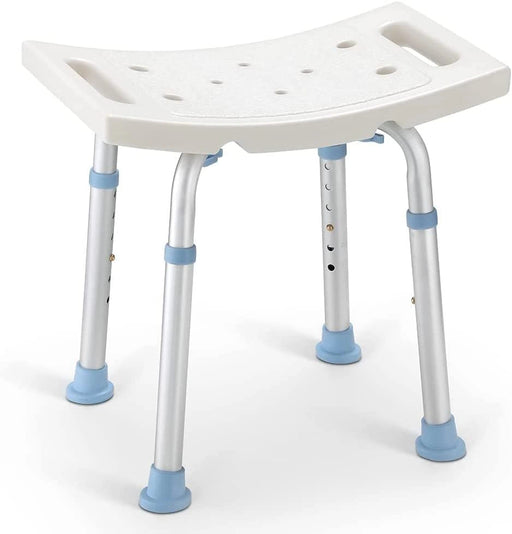 Sale
Sale
Standard - 300LBS Capacity Shower Stool
Original price $51.99From Original price $28.99Original price $51.99Current price $28.99From $28.99Current price $28.99OasisSpace Medical Square Shower Stool for Bathtub OasisSpace Square Shower Stool for Bathtub is approved as the highest standard(FDA) for medical...
View full detailsSaleOriginal price $51.99From Original price $28.99Original price $51.99Current price $28.99From $28.99Current price $28.99 -
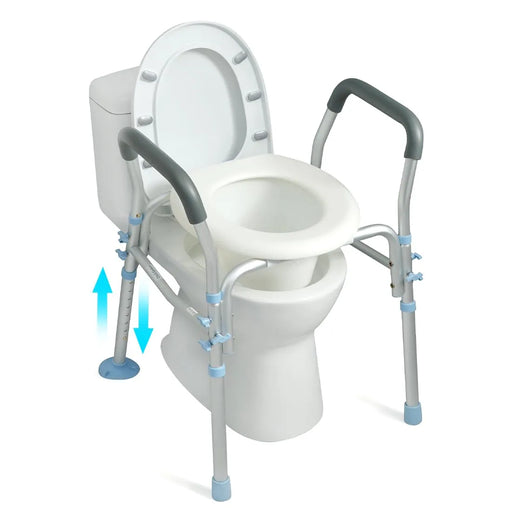 Sale
Sale
300LBS Capacity Raised Toilet Seat with Arms
Original price $120.99From Original price $69.99Original price $120.99Current price $69.99From $69.99Current price $69.99OasisSpace Raised Toilet Seat with Arms - Safe and Convenient OasisSpace Raised Toilet Seat with Arms provides stable support for users to sit dow...
View full detailsSaleOriginal price $120.99From Original price $69.99Original price $120.99Current price $69.99From $69.99Current price $69.99 -
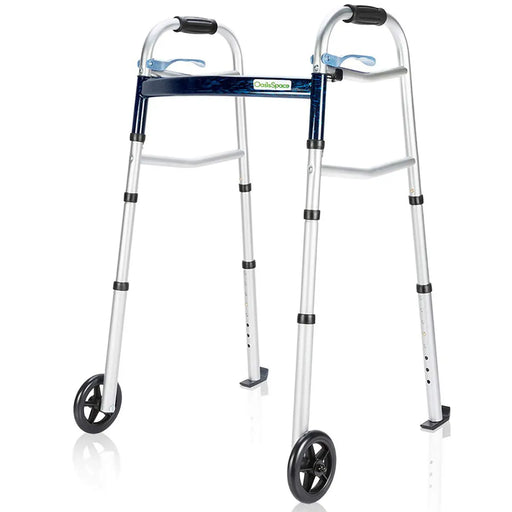
350LBS Capacity 2 Wheel Walker
From Original price $39.99Original price$39.99From $39.99Current price $39.99Product Advantages OasisSpace's 350LBS Capacity walker offers a fusion of lightweight design and sturdy support, crafted from high-grade anodized ...
View full detailsFrom Original price $39.99Original price$39.99From $39.99Current price $39.99 -

Wall Mounted - 400LBS Capacity Teak Folding Shower Seat
From Original price $131.99Original price$131.99From $131.99Current price $131.99Advantages OasisSpace Teak Wall-Mounted Shower Seat adopts a folding design, which can save space to the greatest extent and can be folded up at a...
View full detailsFrom Original price $131.99Original price$131.99From $131.99Current price $131.99 -
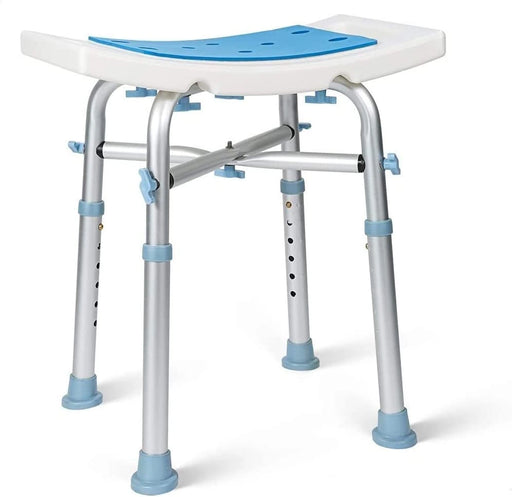 Sale
Sale
Padded & Bariatric - 500LBS Capacity Heavy Duty Shower Stool
Original price $57.99From Original price $36.99Original price $57.99Current price $36.99From $36.99Current price $36.99OasisSpace Medical Heavy Duty Bariatric Shower Stool OasisSpace Medical Heavy Duty Bariatric Shower Stool is approved by the FDA, which is the hig...
View full detailsSaleOriginal price $57.99From Original price $36.99Original price $57.99Current price $36.99From $36.99Current price $36.99 -
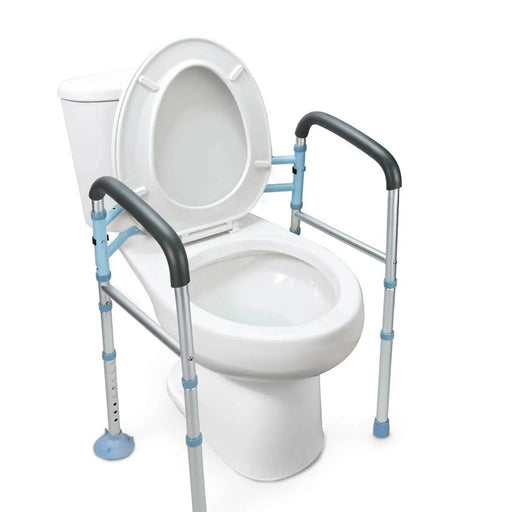 Sale
Sale
300LBS Capacity Stand Alone Toilet Safety Rail
Original price $69.99From Original price $44.99Original price $69.99Current price $44.99From $44.99Current price $44.99OasisSpace Toilet Safety Rails - Fit Any Toilet OaisSpace stand-alone toilet safety rails provide sturdy support for the elderly and people with ...
View full detailsSaleOriginal price $69.99From Original price $44.99Original price $69.99Current price $44.99From $44.99Current price $44.99







